Pakistan floods: Death toll rises to 1,061 as government seeks foreign aid
The death toll from monsoon flooding in Pakistan has reached 1,061, according to the latest figures released by the country's disaster management authority, even as Islamabad continues to seek international aid to help manage the “overwhelming” scale of destruction.
The National Disaster Management Authority (NDMA) said in a press statement on Monday that 28 people had died in the last 24 hours, but authorities were still trying to reach cut-off villages in the mountainous north that has been worst affected.
"I haven't seen the destruction of this scale, I find it very difficult to put into words ... it is overwhelming," Pakistan's foreign minister Bilawal Bhutto-Zardari said in an interview with Reuters on Sunday.
The top Pakistani diplomat called on the International Monetary Fund (IMF), as well as the international community, to “grasp” the scale of the tragedy and help the disaster-stricken nation.
“I would expect not only the IMF, but the international community and international agencies to truly grasp the level of devastation," he said.
Islamabad has declared a national emergency to deal with the monsoon floods that have hit areas across the country and affected more than 30 million people.
Described as a “humanitarian disaster of epic proportions”, officials say this year's monsoon flooding has affected more than 33 million people -- one in seven Pakistanis -- destroying or badly damaging nearly a million homes.
The NDMA said more than two million acres of cultivated crops have been destroyed by the deluge, 3,457 kilometers of roads have been damaged, and 157 bridges have been washed away.
It reported massive destruction in almost all the provinces, but Baluchistan in the southwest has been the hardest hit.
Photos and footage posted on social media showed large swathes of farmland completely under water and gushing floodwater washing away houses, roads, livestock, and all else on its path.
Some reports indicated the breakout of waterborne diseases. Over 20 million people have been displaced, according to a government estimate.
Remote areas have been cut off from the rest of the country. The country’s weather forecast division does not predict the rains to end before late September.
Meanwhile, Iran has pledged emergency aid to the country. In a phone call with Pakistani Prime Minister Shehbaz Sharif on Saturday, Iranian President Ebrahim Raeisi assured his Pakistani counterpart that the Islamic Republic would provide relief aid to its eastern neighbor.
VIDEO | Paris celebrates 47 years of Islamic Revolution in Iran
VIDEO | Killed twice: Palestinian-Americans and the price of silence
VIDEO | Pakistan slams US for publishing map depicting Kashmir as part of India
VIDEO | India-US trade deal faces protests from unions, opposition
VIDEO | 44th Fajr film festival closes with award ceremony in Tehran
North Korea warns of 'terrible response' to drone incursions from South
Whistleblowers: CPJ scrapped 'impunity index' to shield Israel
Trump creating conditions that may lead to 'good deal' with Iran: Netanyahu


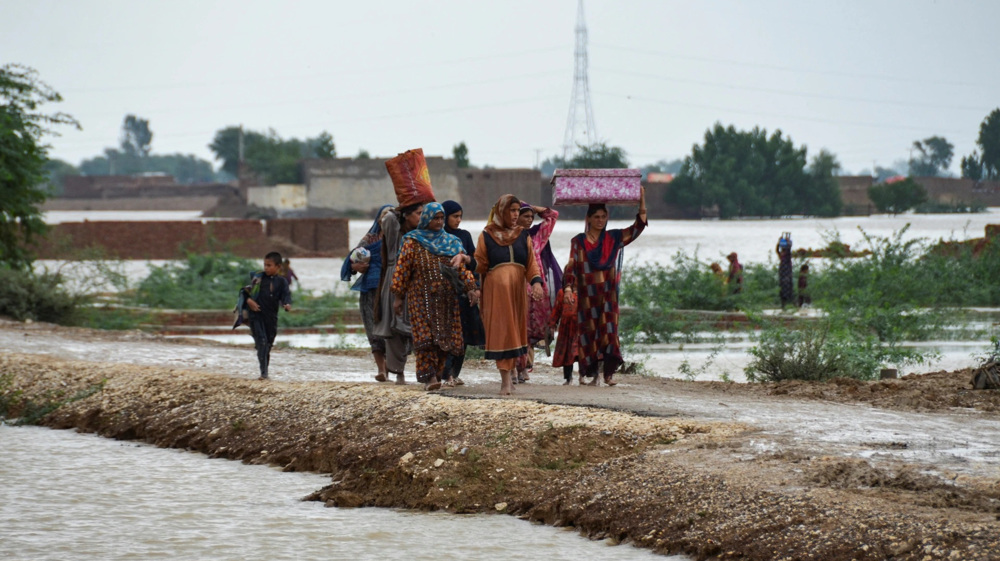
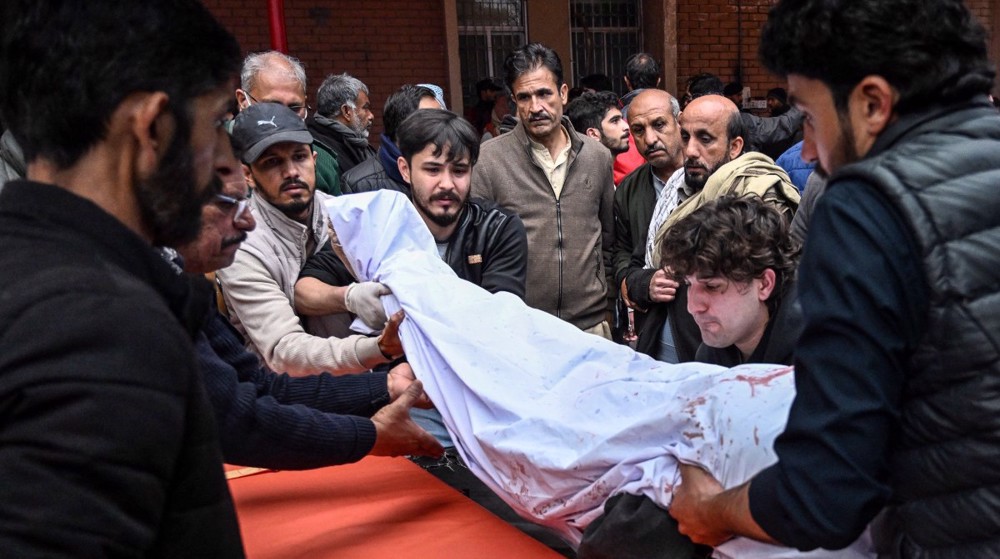
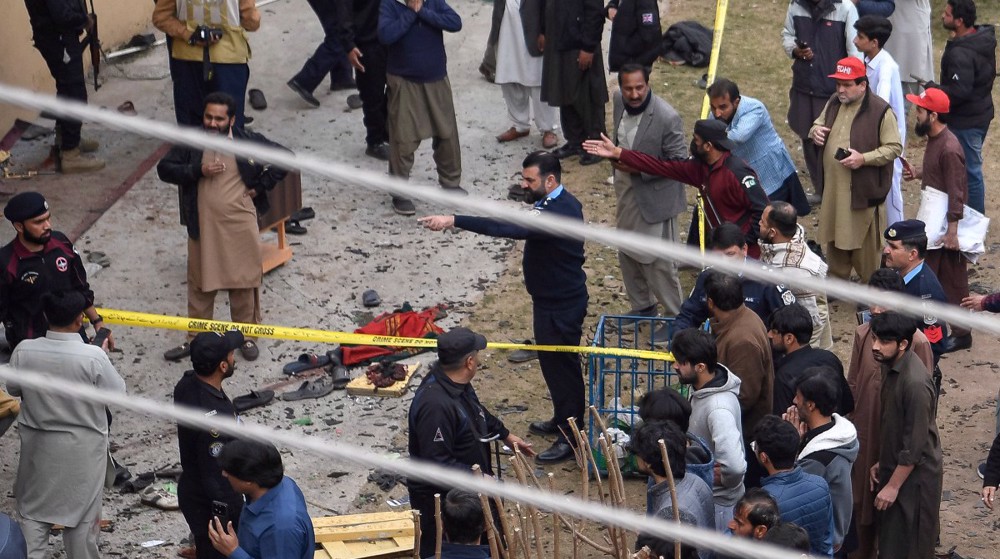
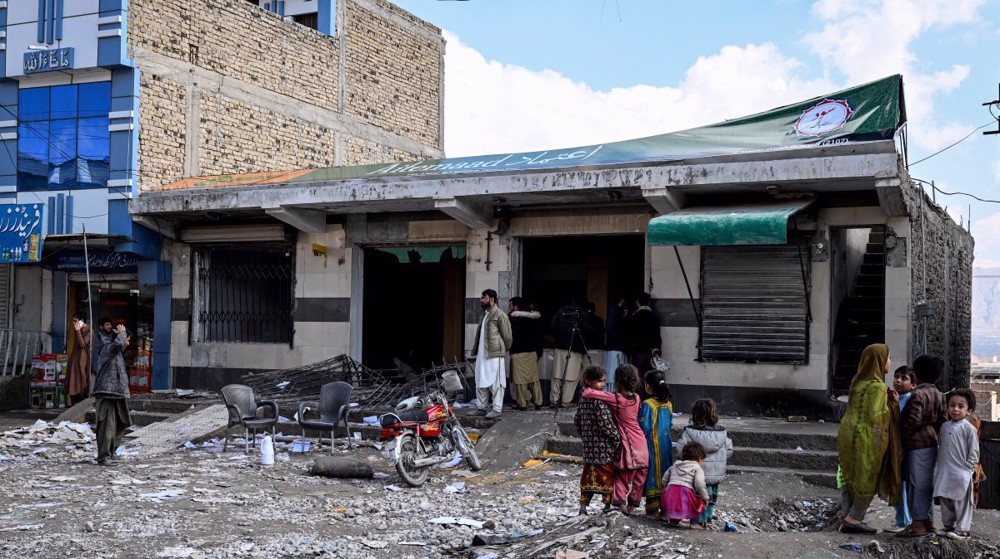



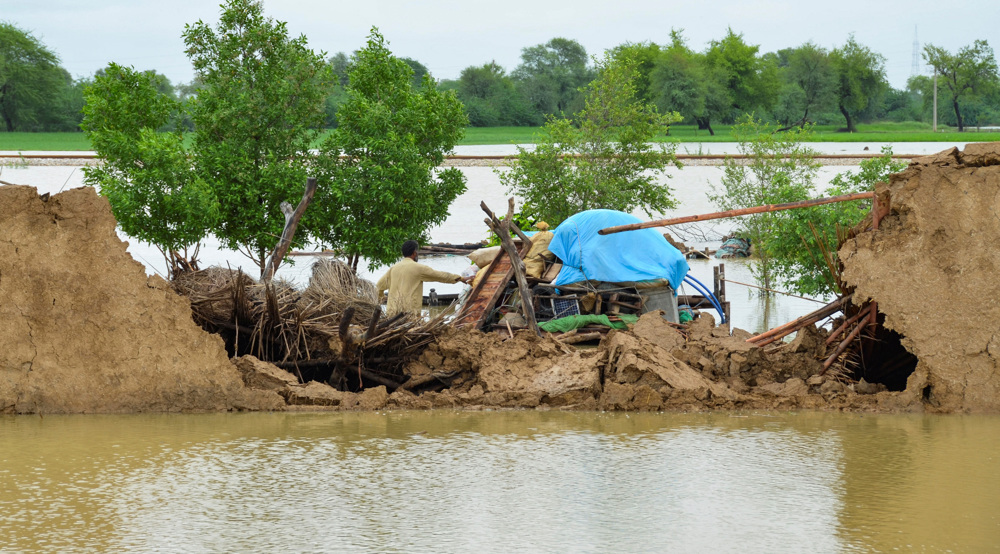
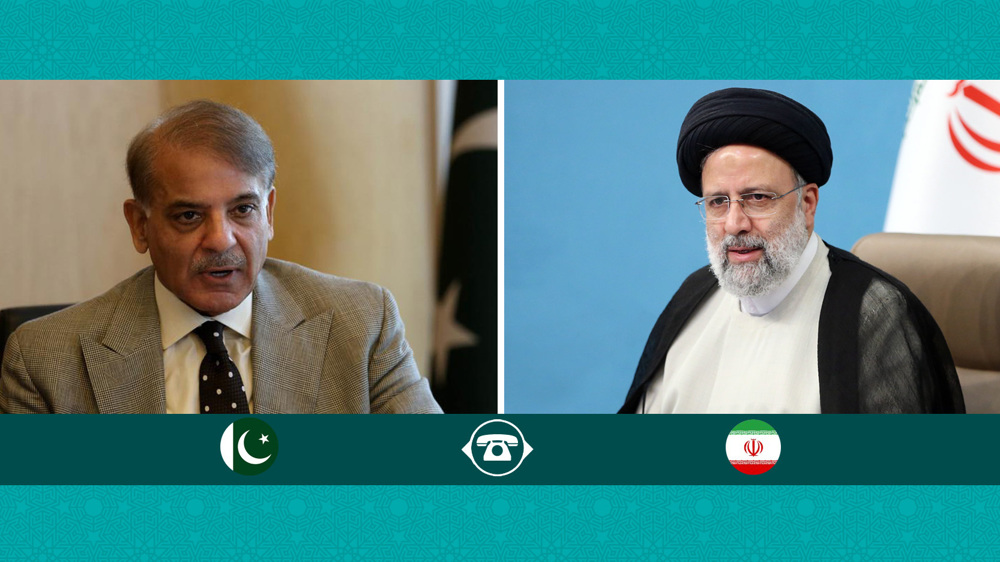
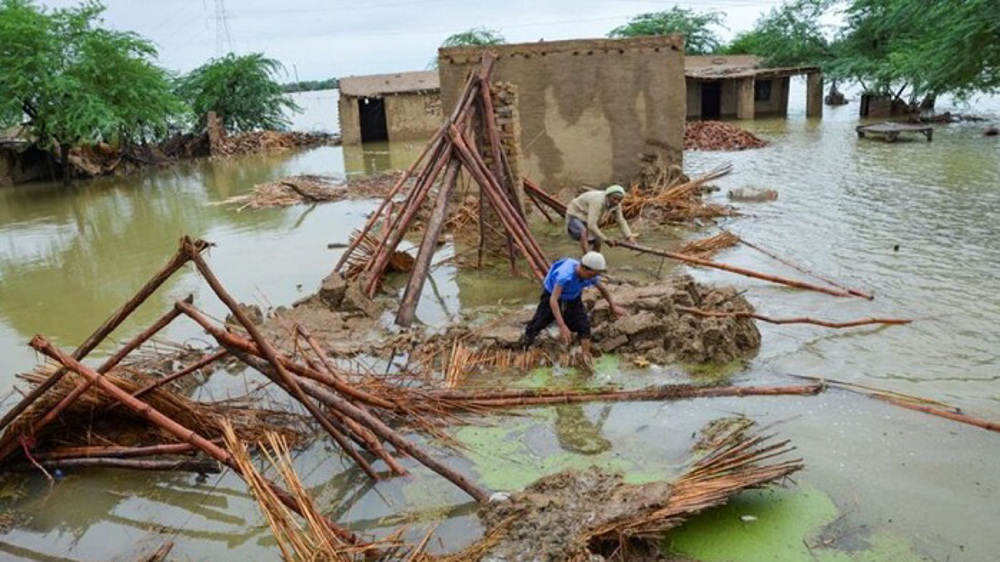

 This makes it easy to access the Press TV website
This makes it easy to access the Press TV website